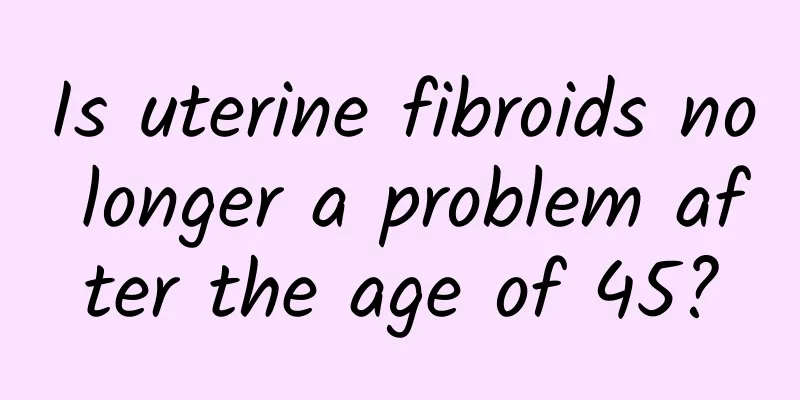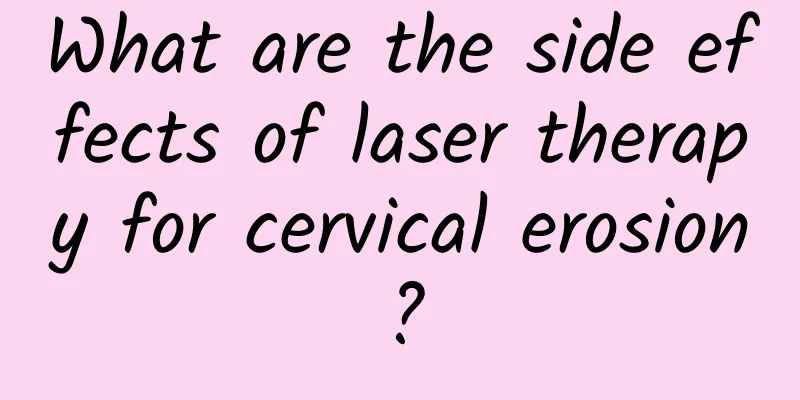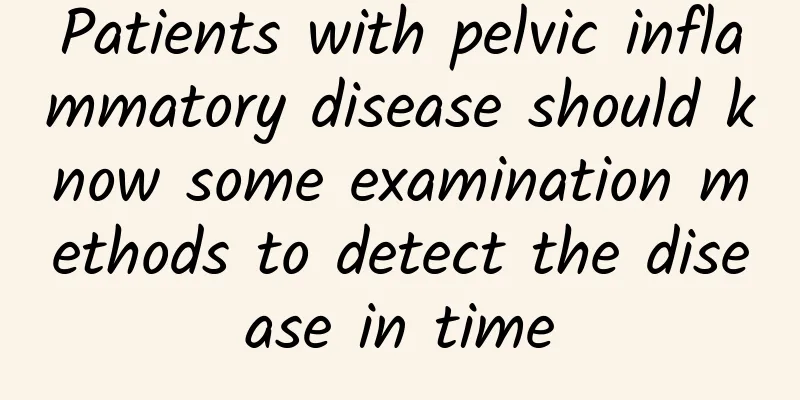Is uterine fibroids no longer a problem after the age of 45?

|
Uterine fibroids cannot be ignored after the age of 45. As women age, they gradually enter perimenopause and menopause, and their hormone levels change. A drop in estrogen levels may slow the growth of uterine fibroids, but it does not mean that the fibroids will disappear on their own. Some uterine fibroids may show symptom changes at this stage. For example, fibroids that were originally asymptomatic may experience pain, compression symptoms, or a sudden increase in size. Although the probability of uterine fibroids becoming malignant is very low, it is not completely impossible. Especially when the fibroids grow rapidly and abnormal symptoms such as irregular vaginal bleeding appear, you need to be alert to the possibility of malignant transformation and must conduct further examinations and treatment. If the fibroids are large, they may compress surrounding organs, such as the bladder and rectum, causing symptoms such as frequent urination, urgency, difficulty urinating, and constipation. Even after the age of 45, these compression symptoms will seriously affect the quality of life and require treatment. Knowing that you have uterine fibroids may bring psychological pressure and affect your mood and mental health. Timely attention and treatment of uterine fibroids can relieve the psychological burden. Although the probability of uterine fibroids becoming malignant is very low, it is not completely impossible. Especially when the fibroids grow rapidly and abnormal symptoms such as irregular vaginal bleeding appear, you need to be alert to the possibility of malignant transformation and must conduct further examinations and treatment. If the fibroids are large, they may compress surrounding organs, such as the bladder and rectum, causing symptoms such as frequent urination, urgency, difficulty urinating, and constipation. Even after the age of 45, these compression symptoms will seriously affect the quality of life and require treatment. Knowing that you have uterine fibroids may bring psychological pressure and affect your mood and mental health. Timely attention and treatment of uterine fibroids can relieve the psychological burden. Uterine fibroids cannot be ignored after the age of 45. Regular examinations, conservative observation or appropriate treatment measures should be carried out according to the specific conditions of the fibroids to protect women's physical health and quality of life. |
<<: Can I take birth control pills more than a month after ectopic pregnancy surgery?
>>: Does pelvic effusion need treatment?
Recommend
Is the injection for uterine fibroids effective?
Are injections for uterine fibroids effective? 1....
Some precautions for the use of medications for vaginitis
Many female friends rarely go to the hospital for...
Women with irregular menstruation are more likely to develop diabetes
Adult women who have long but very irregular mens...
Why can't you eat red beans for uterine fibroids? Why can't you eat red beans, black beans, and mung beans for uterine fibroids?
Why can't you eat red beans if you have uteri...
Will cervical warts recur?
Cervical warts are a highly contagious sexually t...
When is the best time for medical abortion? What are the precautions for medical abortion?
The best time for medical abortion is in the earl...
Is brown blood in early pregnancy an ectopic pregnancy?
Does brown blood in early pregnancy mean an ectop...
Tianqi Tongjing Capsule for the treatment of dysmenorrhea
Tianqi Tongjing Capsule is a commonly used Chines...
A brief discussion on the diagnosis of cervicitis
Cervicitis is a common gynecological disease, whi...
What are the symptoms of pelvic inflammatory disease?
Pelvic inflammatory disease is also a common gyne...
Destroy fatty liver! Half an hour of intermittent exercise every day
The doctor told me I have fatty liver, what shoul...
What are the dangers of Bartholinitis to women?
To understand the harm of Bartholinitis, we must ...
Coffee not only refreshes you, but also helps you lose weight and improve fatty liver! 5 good articles to take notes on, drink coffee healthily
Coffee is the golden drink of choice for many peo...
Follow the famous models to get a nice butt and thighs, wear shorts and bikinis to welcome the summer
The weather is getting hotter and hotter, and the...
How to treat cervical erosion during pregnancy? 2 treatments for cervical erosion during pregnancy
Simple cervical erosion during pregnancy does not...









